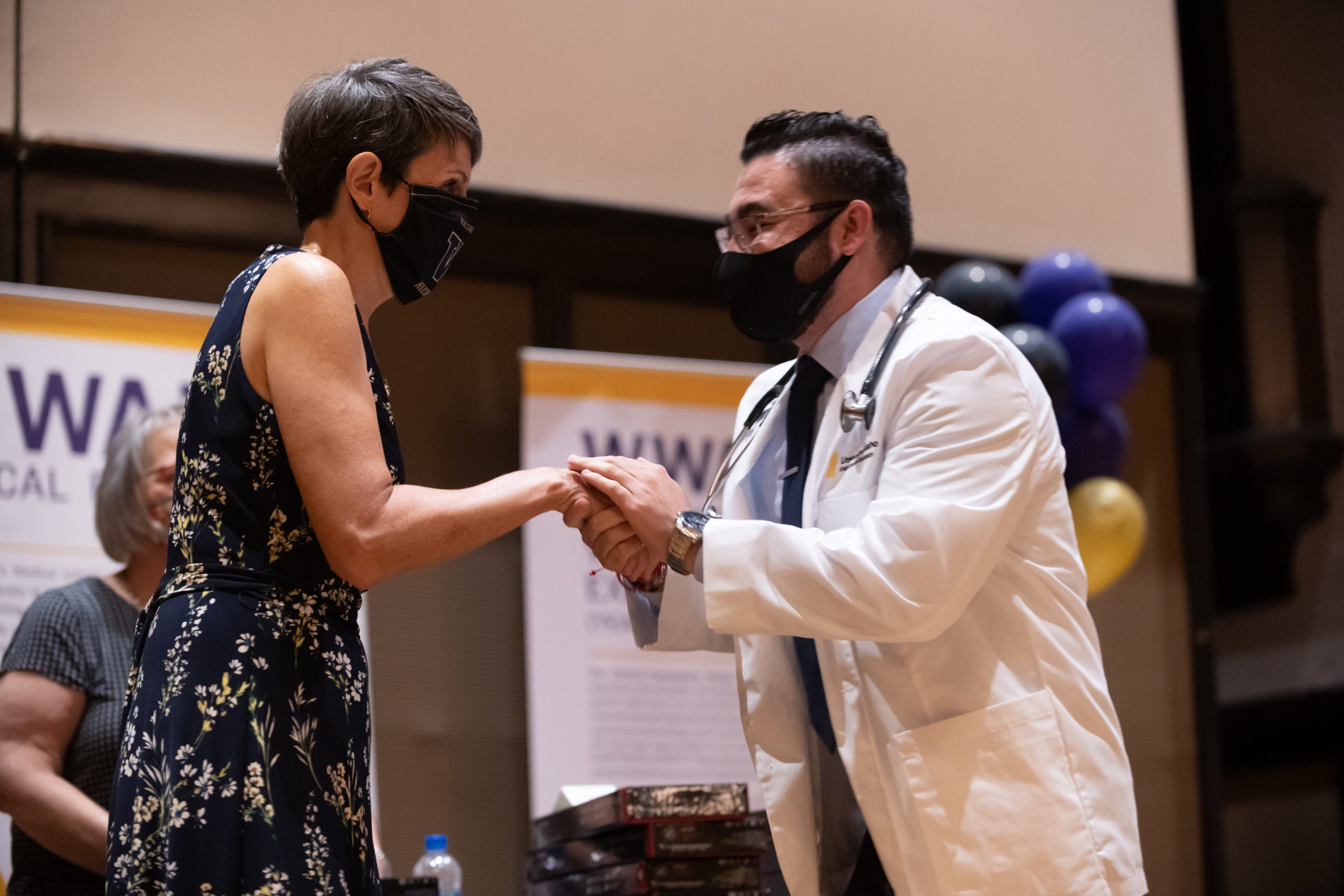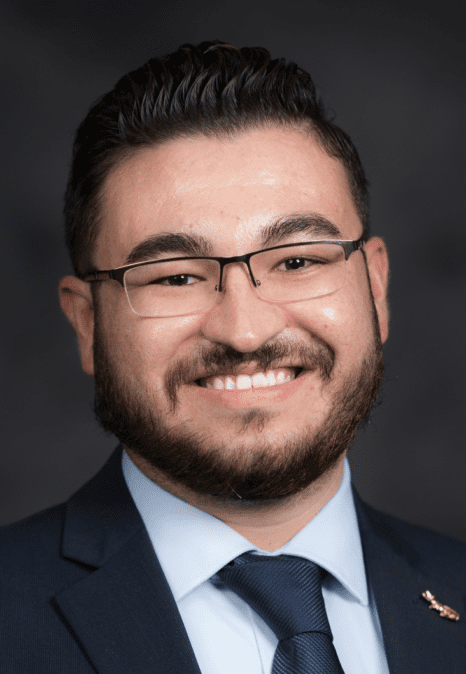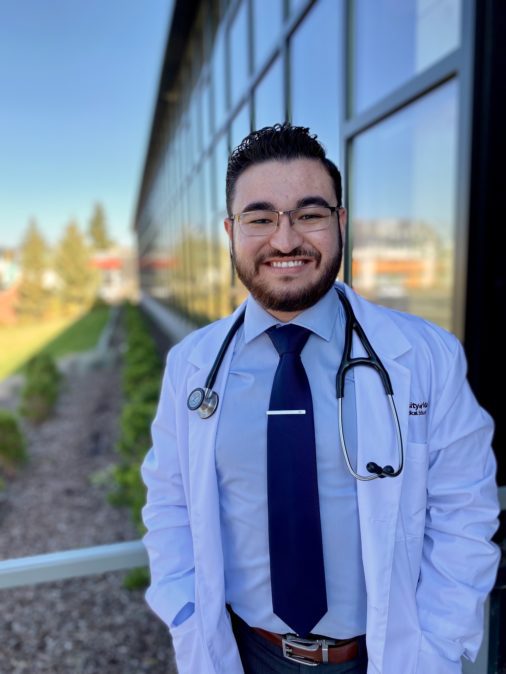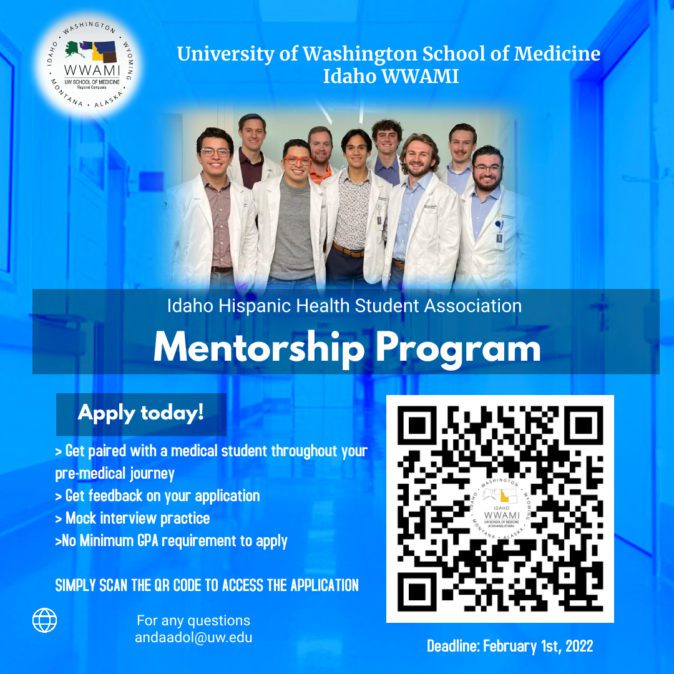
Adolfo Andazola-Carmona hopes to become primary care provider in rural Idaho
Adolfo Andazola-Carmona took a nontraditional path to medical school, and now he is working to make it easier for others who hope to follow in his footsteps.

Andazola-Carmona was born in Mexico and didn’t move to the United States and Carey, Idaho, until he was 11 years old. He said a lack of mentors and role models made it difficult for he and other minority students to pursue medical school. As a result, he and other students at the University of Washington School of Medicine created the Idaho Hispanic Health Student Association.
“We have the goal of guiding and serving as mentors for students primarily from underrepresented backgrounds,” Andazola-Carmona said, adding that the group is mentoring 30 pre-medical students across Idaho. “For many of us who come from low-income families and are first-generation college students, it can be hard to find a mentor. We want to serve as mentors and guides for those students.”
This isn’t the first time he’s created a support group for this population. In 2019, he and another undergraduate student formed a chapter of the Society for Advancement of Chicanos/Hispanics and Native Americans in Science (SACNAS) at Idaho State University. The purpose of SACNAS is to introduce first-generation and underrepresented students to research. The ISU chapter was recently recognized as an official chapter of SACNAS by the national organization.
Scholarship recipient
Andazola-Carmona is a first-generation college student and recipient of a scholarship funded by the Blue Cross of Idaho Foundation for Health. The scholarships are awarded to medical students from Idaho enrolled in the WWAMI Medical Education Program at the University of Idaho who want to practice medicine in rural Idaho. He is finishing up his first year in the program, which is a five-state partnership between the University of Washington School of Medicine and the states of Washington, Wyoming, Alaska, Montana and Idaho.

The Idaho WWAMI program allows 80 students (40 each year) — all of whom call the Gem State home — to attend their first two years of medical school at the University of Idaho. During the clinical phase of their education, students can complete almost all required clerkships across sites in Idaho, or, if they choose, anywhere within the WWAMI region.
Andazola-Carmona said he likely would not be in medical school had it not been for finding a mentor while he attended ISU and studied Spanish for Health Professions.
“Growing up in a small town, there were not a lot of mentors. I didn’t see anyone in or who had gone to medical school who I could look up to or a role model,” Andazola-Carmona said. “When I got to ISU, I had a mentor, and if it wasn’t for him, I probably wouldn’t be here. He took me under his wing and pushed me through. I want to return the favor to others in similar positions. I want to do something about it.”
An important mentor
That mentor was Dr. Manuel Sierra, a psychiatrist, who practices in Pocatello. Andazola-Carmona performed some of his clinical rotations with him that led to the mentorship.
“Adolfo was always very thoughtful and I really appreciated his questions when discussing patients,” Sierra said. “He was always thinking about the system the person was in – their background, family and community. He didn’t just focus on the disorder or chief complaint. He wanted to make sure he took into account how other factors could be contributing to the symptoms and how those factors might be a part of the treatment and support.”
Even though he’s early in his medical education, Andazola-Carmona already has decided that primary care is the specialty he’ll pursue. He’s been assigned to do his clinical rotations in Jerome, not too far from his family in Carey.
“I’m from a small farming town, and I think how I can make the biggest impact is being a primary care provider,” he said. “You are almost family when you are a primary care provider in a small town. You get close to the people you see, and I really like that aspect of family medicine.”
That doesn’t surprise Dr. Sierra, who has been impressed by Andazola-Carmona’s dedication and propensity for helping others.
“I really appreciate his willingness to learn and take feedback,” Sierra said. “He wanted to learn more so he could be a great student and then a great doctor. He will be an amazing asset to the community he is serving.”

